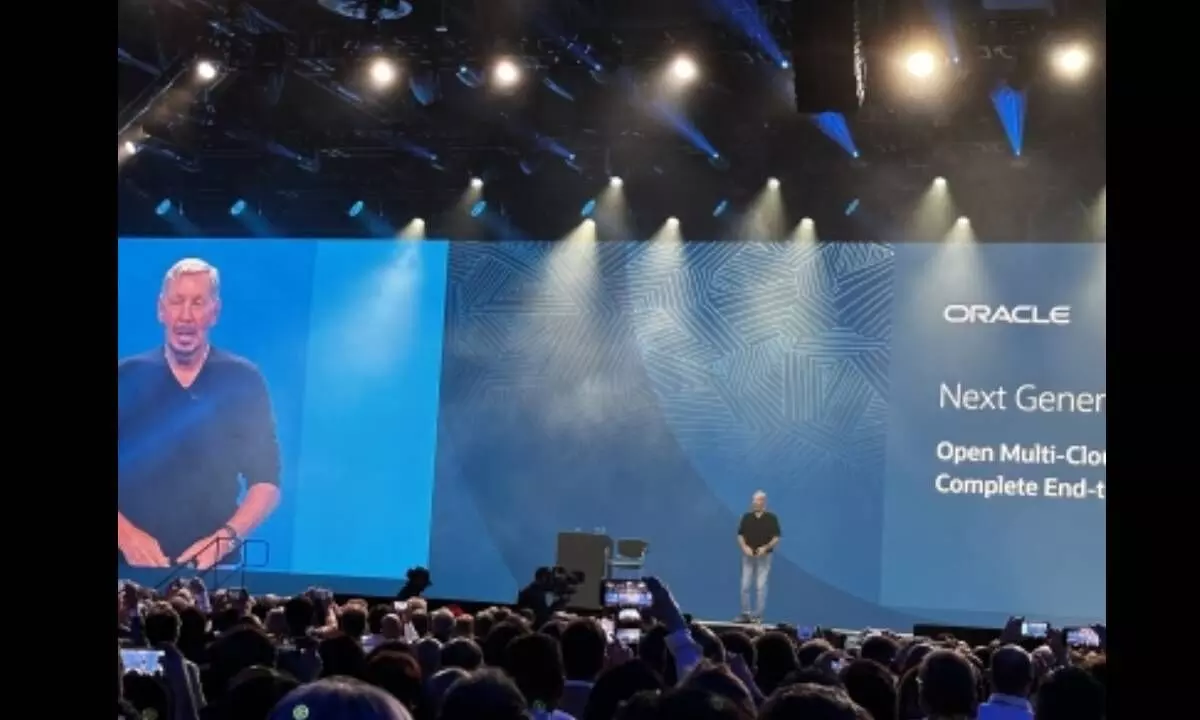'We have to catch next pandemic earlier': Oracle's Larry Ellison
At age 78, Oracle's Larry Ellison is still on the job and this time, it is more than just Cloud, as he aims to safeguard humanity from the next pandemic by creating a global electronic health record database that can save millions of lives.
image for illustrative purpose

Las Vegas, Oct 19 At age 78, Oracle's Larry Ellison is still on the job and this time, it is more than just Cloud, as he aims to safeguard humanity from the next pandemic by creating a global electronic health record database that can save millions of lives.
Ellison, Oracle's Chairman and Chief Technology Officer who appeared on stage after two pandemic years at the company's 'CloudWorld' event, emphasised that he has doubled down on his efforts on healthcare, giving Oracle an edge over its rivals with its next generation of healthcare applications.
"We need to automate the entire global healthcare ecosystem. Some of these data can be shared among nations to create a worldwide global public health system. Oracle is going to continue to invest and build health systems, one national and one global," Ellison told the gathering at the event attended by more than 13,000 people here on Tuesday.
The pandemic, which has taken more than 6.5 million lives, has made it clear that the world needs better patient data tracking systems and to do a better job of managing healthcare, especially during a crisis.
Ellison said that the company is going to build a patient engagement system that makes it very easy for medical professionals and patients to communicate, and help patients share health experiences with medical professionals.
"We're going to automate the connection between patients and healthcare providers by building the next generation of healthcare applications. We have to catch the next pandemic earlier," Ellison told a packed house.
"Why is there a global financial database that knows your entire credit history but not a global healthcare one? If you have an accident, the hospital will know your financial records but not if you're allergic to penicillin," he stressed.
Oracle, which completed its $28.4 billion acquisition of electronic health records company Cerner, is developing a national health records database.
Cerner is a leading provider of digital information systems used within hospitals and health systems to enable medical professionals to deliver better healthcare to individual patients and communities.
According to Ellison, the patient data would be anonymous until individuals give consent to share their information.
Ellison assured that Oracle's database will anonymise all patient data.
Oracle's new health records database will also involve the patient engagement system the company has been developing throughout the pandemic.
Oracle is also working on the patient engagement system's ability to collect information from wearables and home diagnostic devices.
Ellison admitted this is an ambitious goal.
"We know we can't use the same set of tools to build these applications, it's just too costly and time-consuming and the services need to be secure, resilient and easy to use," he said.
"We need a completely new set of tools. We have to develop 10 times faster," he said, adding that acethere will soon be a single place where you go to find out your healthcare records".
In this regard, Oracle has collaborated with the University of Oxford in the UK, MD Anderson Cancer Centre in the US, medical diagnostics company AMDI, and others.
Cerner and Oracle have the capacity to transform healthcare delivery by providing medical professionals with better information, enabling them to make better treatment decisions resulting in better patient outcomes.
"This new generation of medical information systems promises to lower the administrative workload burdening our medical professionals, improve patient privacy and outcomes, and lower overall healthcare costs," said Ellison.
(Nishant Arora can be reached at [email protected])

